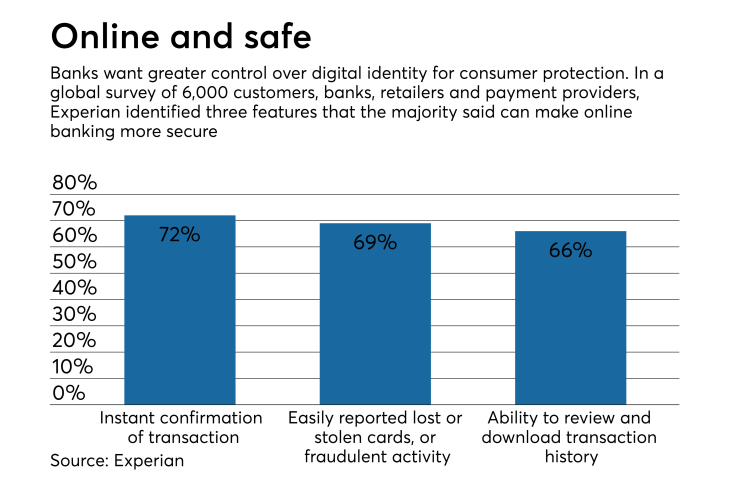Much of the banking industry has approached digital identity as a security and liability concern to be managed. Capital One has taken a different tack, spending much of the past year building out a digital identity platform that it can potentially position as a service it would sell to businesses.
By buying the startup Confyrm and hiring its founder, consumer identity expert Andrew Nash, the bank is taking another step toward making a business out of addressing the industry's digital identity needs, industry observers say.
“I think only a handful of banks could really emerge as providing a set of services around digital identity,” said Ron Shevlin, director of research at Cornerstone Advisors, who wrote a

Last year, the bank
“It fits with Capital One’s strategy, not just from a digital identity services perspective but with the broader platform business model that Capital One has used to expand its set of services beyond just a narrow set of financial services,” Shevlin said. “Capital One is positioning itself to become the Amazon of banking more than any other big bank is.”
Nash was the director of identity services at Google as well as the senior director of consumer identity at PayPal. He announced in a
“We were eager to scale our efforts to help restore trust in digital identities, and we were fortunate to find a partner in Capital One, who shared our vision and commitment to improving consumer identity protection,” Nash wrote in the post.
In response to inquiries from American Banker, Capital One provided a link to Nash's blog post. The price of the Confyrm deal was not disclosed.
Capital One is not the only bank working with APIs to help protect customers online. Last year BBVA and Bank of America rolled out APIs that made it easier for the banks to share data with third parties and help consumers track where their data is going.
Other large financial institutions have also
In a new era of financial crime, using multiple data points to establish identity is becoming a necessity. New account fraud and account takeover are the two largest threats to financial institutions in online and mobile channels, said Shirley Inscoe, senior analyst at Aite Group.
With GDPR-type legislation being developed in various countries worldwide, Confyrm already has a global approach to identity proofing. The fintech focuses on more than just one sector at a time, and its coverage includes government and retailers, in addition to financial services.
Confyrm’s competitors include companies like LexisNexis, ThreatMetrix, Neustar and Vasco (now called
The closest rival to the San Francisco-based Confyrm would be ID Analytics, said Al Pascual, head of fraud and security at Javelin Strategy & Research. ID Analytics examines the history of individual personally identifiable information elements from across their network of clients when making decisions on applicant risk.
Nash described the sale of his startup to Capital One not so much as an ending but as a continuation of its mission — and at hyper speed.
"For Confyrm, this is validation of the vision we had and provides a platform and brand reach beyond that which a startup can manage on its own," Nash wrote in his post. "Working with Capital One will allow us to massively increase the set of consumers that we can help to protect."





